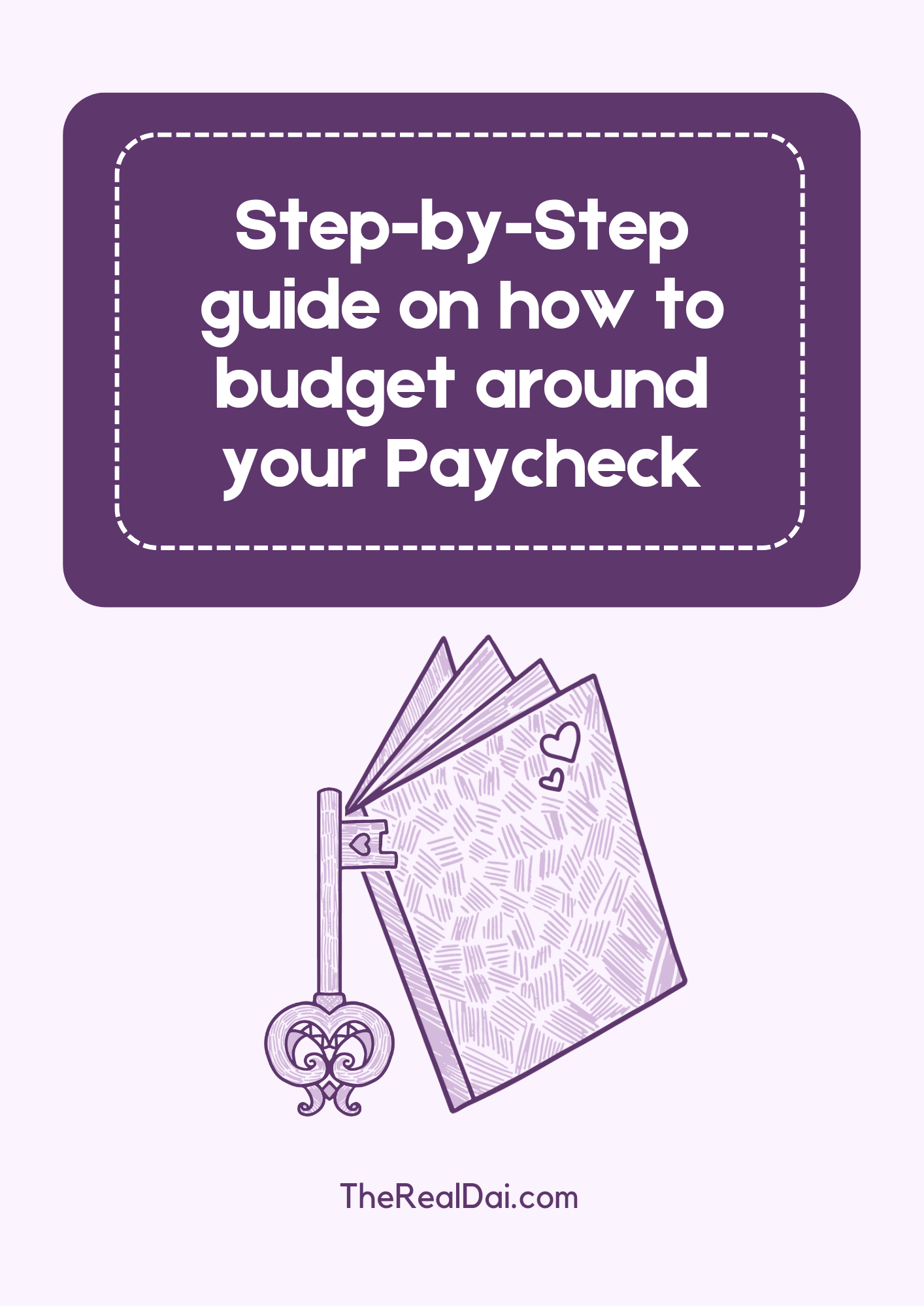Would you like to learn how to budget each paycheck effectively? If you answered yes, then you’ve found the right post.
By managing your finances based on your income, you can take control of your financial situation and avoid unnecessary expenses. This responsible approach to spending can help you stay on top of your bills and avoid late fees while encouraging healthy financial habits. So take charge of your finances today and start enjoying the peace of mind that comes with responsible money management.
Let’s plan around your budget! Since every individual’s budget may vary based on their bills, I’ll assist you in calculating your budget.
It’s time to start planning your budget.
To get started, it’s important to have a monthly calendar handy. I purchased a planner on Amazon, but if that’s not an option for you, your phone’s calendar works just as well. Alternatively, if you prefer the traditional method of writing things down, feel free to get creative and draw your calendar. The goal is to have a visual representation of your bills and debt so that you can keep track of everything more easily.
Now that you have a calendar, it’s time to tackle the uncomfortable task of listing your bills and debt. This step can be daunting for many as it requires facing the total amount paid each month. It’s natural to feel anxious about managing these expenses and maintaining your lifestyle. However, please know that you’re not alone, and I assure you that you’ll feel relieved once you complete this step.
Things to Include when Creating a Budget List
It’s essential to be thorough when listing your bills and debt, including the monthly payment amount, due date, and total balance owed if it’s debt. While paying off debt will be covered in a separate post, my primary focus is to assist you in creating a monthly budget to manage your bills effectively.
Now that you have written everything down, it’s time for the fun part. This is particularly enjoyable for those who have taken the time to write things down because you can let your creativity run wild by using various colored pencils or pens.
Putting everything on the calendar
Now that you have the details of your bills and debts let’s transfer everything onto your calendar. As the calendar already has dates, you don’t need to write the due dates. Instead, please write the name of the debt and its amount. For instance, “rent/ $1000,” and if it’s due on the 1st, place it on the 1st day of your calendar. Do this for all your bills. If you have accounts due several times a month on specific days, write the statement and amount on each day it’s due. For example, “rent $500 on Fridays biweekly.”

Let’s Talk About Money
Once you have listed your bills on the calendar, it is time to calculate your available funds.
What is your weekly, biweekly, semi-monthly, or monthly pay schedule? Additionally, do you have multiple sources of income? Is your payment fixed, or does it vary based on the number of hours you work?
Knowing your pay schedule and keeping track of your earnings is important. If your pay is not fixed, estimate the amount by multiplying your hourly rate by the number of hours you work each week. For example, if you get paid biweekly, multiply that amount by two or calculate the total hours you work per pay period by your hourly rate. It’s best to round the amount down to ensure you have more left over than you need. Over-calculation can lead to overspending, so be cautious and calculate conservatively.
After calculating your pay, it’s time to add it to your calendar.

Time to Budget!!!
Now that everything is scheduled on your calendar, it’s time to focus on budgeting. This is the stage where you can assess whether you need to increase your work hours, take a part-time job, or do a side hustle.
Let’s begin by creating a budget plan for your income. To illustrate this, we can refer to my calendar as a helpful tool.
I will have a bill due in July before receiving my first paycheck. I’ll either need to use my savings or save the money from my previous paycheck to prevent a late fee. Most of my bills are due after I receive two checks. However, it’s still important to calculate everything just in case I don’t earn enough during that pay period. This way, I can save some money to cover the other bills.
To be on the safer side, it’s essential to perform this task every month before you decide to spend any additional money.
I hope you found this blog helpful. Don’t forget to subscribe and visit my blog page for the latest posts. If you have any questions about this article, please comment below.





I love it! Budgeting is key to living an stress-free life. Finances when managed poorly is one of the top causes of stress and relationship issues. Thanks for giving your insights and guidance.